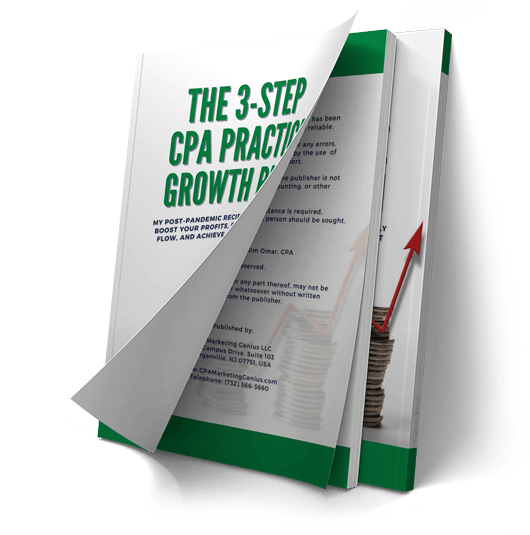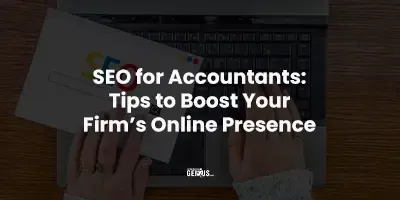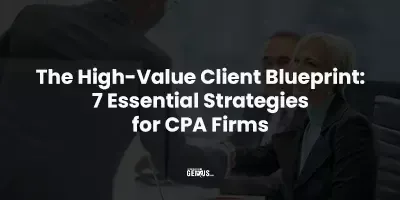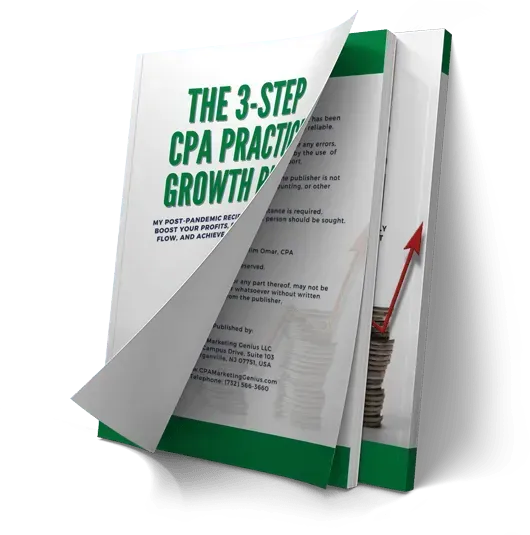Hiring Freelancers Who Bring Exceptional Value
Much of a practice’s success is owed to its team, but the boundaries of that team can often stretch beyond employees.
In my practice, for example, we use freelancers for a variety of tasks: graphic design, presentation design, copywriting, transcription, etc.
Their contributions are no less valuable than those of my day-to-day staff. A freelancer’s work, when it’s done well, can have a significant impact on a firm’s growth.
Each freelancer, like each employee, is a piece of the puzzle. Everyone plays an important role in creating a thriving whole.
Because of the value that freelance pros can bring, I believe they should be interviewed with the same attention given to potential employees.
In this blog post, I will share practical tips for hiring freelancers – tips that will bring some sophistication to your game and help you identify the best possible contractors to fit in with and round out your team.
Important: The tips I share here can also be successfully used to hire employees. Use them.

Yes, it’s important that a candidate has the necessary skills to perform the work you’re hiring him or her to do. However, a truly winning fit can be found when you ask questions that uncover the human being behind the resume and get to know what makes them tick.
Carol Quinn, author of Don’t Hire Anyone Without Me! , calls this motivation-based interviewing. This is how you get to know whether or not a person will work well with you and your team. Listen carefully and trust your instincts.
I know -- “trust your instincts” might be vague advice, and you may even struggle to recognize your own instincts until you’ve been doing this a while. Fair enough.
For practicality’s sake, I’ll share three questions we use when interviewing job candidates. These are questions that have proven to reveal a lot about the candidate’s personality and thought process, and have helped us get a sense if this is someone we want to work with.
While not all of them apply specifically to freelancers, they will serve as an example of revealing inquiries and how to listen for subtext in their answers.

If we want you to thrive in our environment, what should we know about you?
This question is an alternative to the classic interview questions, “What are your strengths? What are your weaknesses?”
An interviewee will often tell you what they think you want to hear. By phrasing the question this way, you’re more likely to get an accurate representation of how the person works.
For example, some interviewees may answer this question with, “I like to always be busy.”
In their mind, they may think this makes them sound like a hard worker. But there’s another side to this answer. It could also indicate that this person needs a lot of hand-holding, needs to be told what to do and kept busy at all times – instead of being the kind of proactive person who finds ongoing ways to contribute on their own.
In my firm, this answer is a red flag, because we value team members who can work independently.
Others may answer this question by saying, “I always need to be challenged.” That’s not necessarily a bad thing, because it could mean they’re a growth-oriented person.
However, it could also mean that when things get a little slow, they may be antsy to move on to another job.
Are they able to keep themselves from getting bored?
This answer could also point to someone who only intends to use our firm as a stepping stone on the way to what they see as a “better” job. We want to work with people who want to work with us!
Where do you go for inspiration? What excites you outside of your professional discipline?
In my firm, we strive not only to provide exceptional service, but to be exceptional people. We shrink from the mediocre, and we want to work with folks who feel and live the same way.
There really is no right or wrong answer to this question – we’re all unique.
Some people love surfing, others live to see another episode of The Bachelor . It’s all good. However, if a candidate has trouble answering this, it may be a clue that they’re a dud – no interests, no passion, completely disinterested in the world. ( Not the kind of candidate we want.)
Also, if a person is out there regularly feeding their mind and soul – whether it’s through experiences, reading, what-have-you – we know they’ll be more likely to bring an interesting perspective to our challenges.
They may be able to teach us a thing or two, and we love that. However, we look for specifics . Rather than being content with a candidate’s response like, “I love learning”, we want to know – what have you learned lately? Did you take a pottery class? Read an archaeology blog? Without specifics, it might just be lip service.
Can you describe a time when you successfully overcame a problem or obstacle?
In my practice, I value people who take ownership of their challenges. What I despise are empty excuses.
This question usually provides good insight into how an individual tackles roadblocks. Do they give up easily? Do they tend to blame other people? Do they know where to look for information? Are they willing to ask for help?
Again, here, specifics are important. What was the challenge? What was getting in the way, or what was missing? How did the story end?
This one’s important because a person can have all the technical skills in the world, but if he or she doesn’t have a knack for solving problems, their skills will be worth very little. Tenacious problem-solvers, however, can be taught any skill.
If a candidate is going to shrink at the smallest sign of trouble, you may see hints of that in their response to this question.
On the other hand, if a person is a real go-getter, you’re bound to hear some impressive problem-solving anecdotes and you’ll know when you’ve found a winner.

Now that you know to look beyond what a candidate knows to who they are and what motivates them, you might want to know what the screening process for freelancers should look like. I’ll share ours.
First, when we find a freelancer we want to get to know better, we have an email conversation and ask for their resume.
We also always ask a personal question, such as “Where do you get your inspiration?” We pay close attention to their response. We’re looking for some of the things we discussed earlier in this article – hints of who they are.
In the cases where we’re hiring a writer, this also helps us get a sense of the quality of their writing and their personal style so we can determine if it’s the right match for our brand.
For example, are they too formal? Too casual? Do they use too many unnecessarily “big” words? Does their work have humor? Only you can know when the writer strikes the right tone for your firm.
We also keep an eye out for hints of carelessness. For example, are their responses misspelled and poorly punctuated? That shows us that they already don’t care enough about us to give us their best – even in an introductory email. Imagine how sloppy their work product might be!
And what about following directions? If you asked for something in PDF format, did you get it? Or did they send a Word document instead? As far as I’m concerned, anyone who doesn’t follow directions at the outset raises a red flag.
Our final step is a phone call. We like to see what kind of rapport we have with the individual when speaking.
We always like to consider three individuals at a time. We have them each go through this process, and we choose the one that our instincts tell us is the best fit.
Some of the world’s most fiercely talented people are freelancers.
Give your practice the opportunity to benefit from their genius.
Use motivation-based interviewing and the screening tips I’ve shared here to find great freelancers who fit your firm’s culture and values and you’ll make fast progress toward your goals.

New Paragraph
Salim Omar
Salim is a straight-talking CPA with 30+ years of entrepreneurial and accounting experience. His professional background includes experience as a former Chief Financial Officer and, for the last twenty-five years, as a serial 7-Figure entrepreneur.

Salim Omar
Salim is a straight-talking CPA with 30+ years of entrepreneurial and accounting experience. His professional background includes experience as a former Chief Financial Officer and, for the last twenty-five years, as a serial 7-Figure entrepreneur.

Salim Omar
Salim is a straight-talking CPA with 30+ years of entrepreneurial and accounting experience. His professional background includes experience as a former Chief Financial Officer and, for the last twenty-five years, as a serial 7-Figure entrepreneur.

Salim Omar
Salim is a straight-talking CPA with 30+ years of entrepreneurial and accounting experience. His professional background includes experience as a former Chief Financial Officer and, for the last twenty-five years, as a serial 7-Figure entrepreneur.

Salim Omar
Salim is a straight-talking CPA with 30+ years of entrepreneurial and accounting experience. His professional background includes experience as a former Chief Financial Officer and, for the last twenty-five years, as a serial 7-Figure entrepreneur.

Salim Omar
Salim is a straight-talking CPA with 30+ years of entrepreneurial and accounting experience. His professional background includes experience as a former Chief Financial Officer and, for the last twenty-five years, as a serial 7-Figure entrepreneur.

Salim Omar
Salim is a straight-talking CPA with 30+ years of entrepreneurial and accounting experience. His professional background includes experience as a former Chief Financial Officer and, for the last twenty-five years, as a serial 7-Figure entrepreneur.

Salim Omar
Salim is a straight-talking CPA with 30+ years of entrepreneurial and accounting experience. His professional background includes experience as a former Chief Financial Officer and, for the last twenty-five years, as a serial 7-Figure entrepreneur.

Salim Omar
Salim is a straight-talking CPA with 30+ years of entrepreneurial and accounting experience. His professional background includes experience as a former Chief Financial Officer and, for the last twenty-five years, as a serial 7-Figure entrepreneur.

Salim Omar
Salim is a straight-talking CPA with 30+ years of entrepreneurial and accounting experience. His professional background includes experience as a former Chief Financial Officer and, for the last twenty-five years, as a serial 7-Figure entrepreneur.












